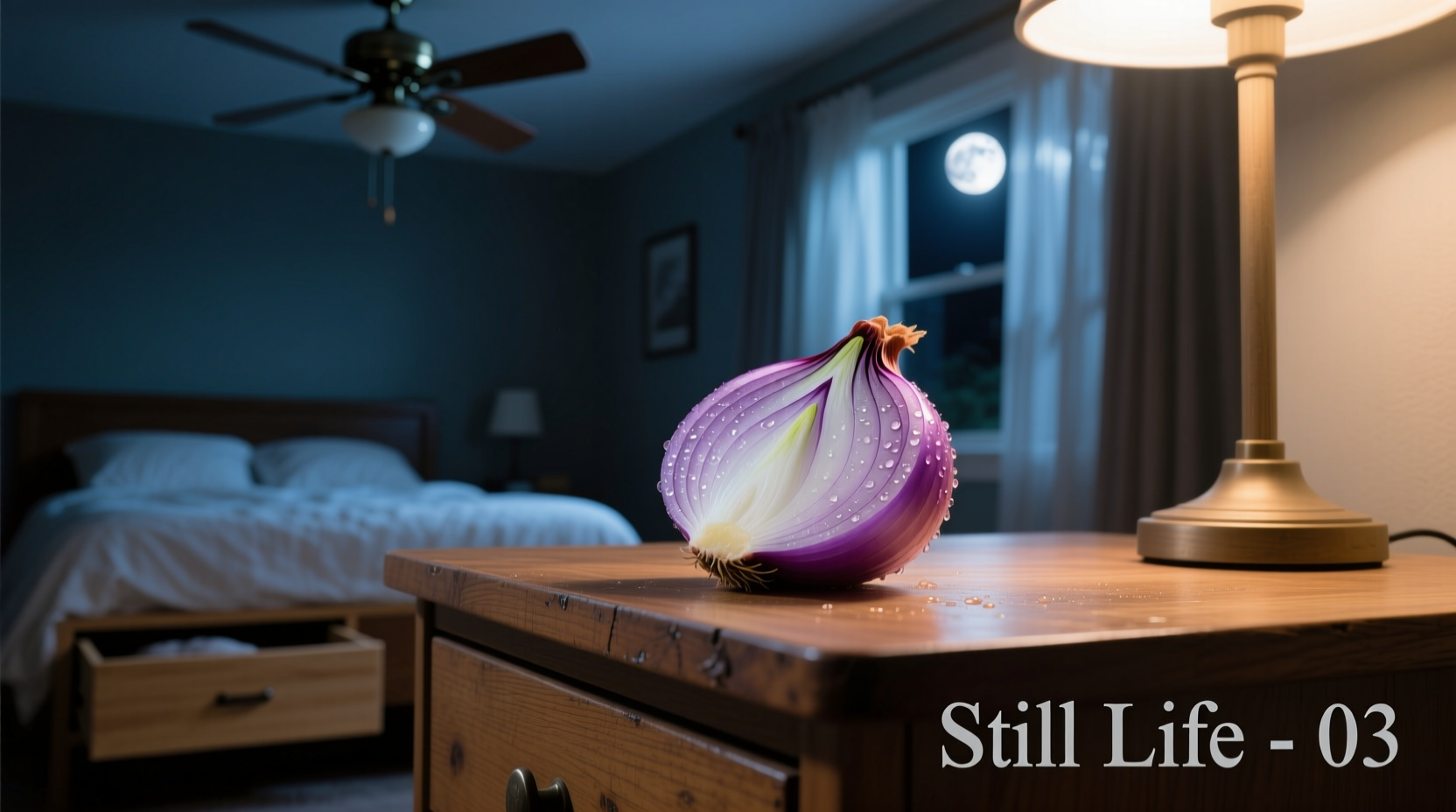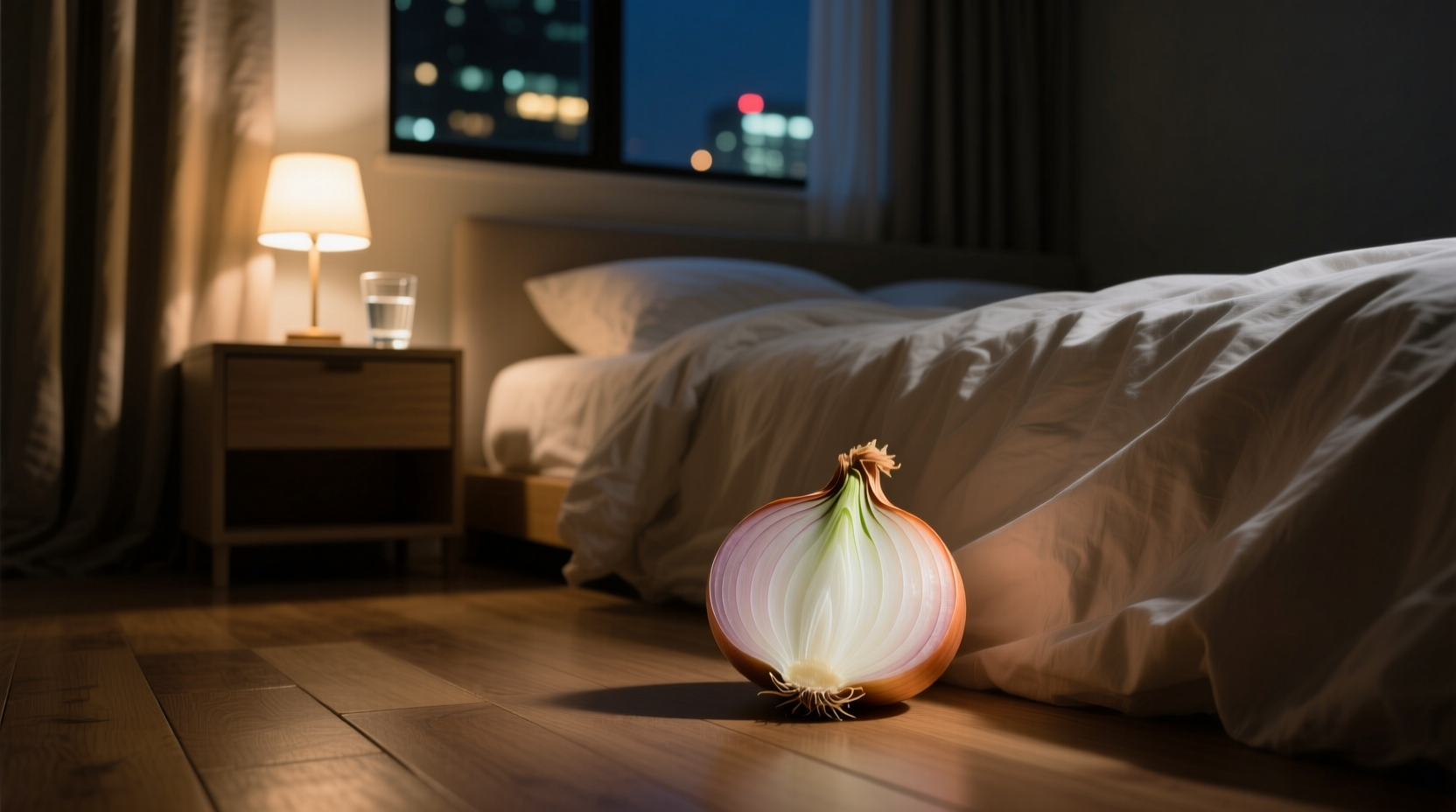Have you encountered claims that placing a raw onion beside your bed improves sleep, purifies air, or prevents illness? This article separates fact from fiction with historical context and scientific evidence, helping you make informed decisions about your sleep environment without falling for viral wellness myths.
The Viral Claim and Its Origins
Over the past decade, social media has circulated claims that cutting an onion in half and placing it beside your bed offers multiple health benefits. Proponents suggest it absorbs toxins, prevents colds, improves breathing, and enhances sleep quality. These claims often reference "ancient remedies" without specifying cultural origins.
| Claimed Benefit | Scientific Reality | Evidence Status |
|---|---|---|
| Absorbs airborne toxins | Onions lack absorptive properties for airborne particles | No scientific support |
| Prevents colds and flu | No antiviral properties when placed passively in room | Debunked by CDC |
| Improves sleep quality | No physiological mechanism for sleep enhancement | No clinical evidence |
Historical Context of Onion Remedies
While the specific "onion beside bed" practice lacks historical documentation, onions have featured in traditional medicine across cultures. Ancient Egyptian medical texts mention onion poultices for infections, and European folk medicine sometimes used onions in sock treatments for colds. However, these involved direct application or consumption—not passive placement in sleeping areas.
The modern viral claim appears disconnected from authentic historical practices. As culinary historian Sarah Johnson explains: "Traditional onion remedies typically involved ingestion or topical application with specific preparation methods. The passive 'place and forget' approach contradicts documented historical usage patterns across civilizations."

Scientific Analysis: What Onions Actually Do
Onions contain beneficial compounds like quercetin and allicin when consumed, but these properties don't translate to passive air purification:
- Air purification claims: The CDC confirms that no food item passively cleans indoor air. Proper air purification requires mechanical filtration or ventilation.
- Antimicrobial properties: Onions show antimicrobial effects in laboratory settings when directly applied to surfaces—not in room air.
- Chemical changes: Cut onions oxidize and decompose, potentially creating moisture that could encourage mold growth in humid environments.
Potential Risks of This Practice
Beyond wasting a perfectly good onion, this practice introduces several concerns:
- Moisture accumulation: Decomposing onions release water vapor, potentially increasing bedroom humidity
- Pest attraction: Sweet compounds in decaying onions may attract insects
- Unpleasant odors: As onions decompose, they develop increasingly strong, unpleasant smells
- Wasted resources: Diverts attention from evidence-based sleep improvement strategies
Evidence-Based Alternatives for Better Sleep
Instead of unproven remedies, consider these scientifically supported sleep environment improvements:
- Maintain bedroom temperature between 60-67°F (15-19°C) as recommended by the Sleep Foundation
- Use HEPA air purifiers for actual air quality improvement
- Implement consistent sleep schedules aligned with circadian rhythms
- Reduce blue light exposure 1-2 hours before bedtime
- Consider clinically proven aromatherapy options like lavender essential oil
When to Consult Healthcare Professionals
If you're experiencing persistent sleep issues or respiratory concerns, consult appropriate professionals rather than relying on unverified home remedies. The American Academy of Sleep Medicine recommends medical consultation for:
- Chronic insomnia lasting more than three weeks
- Daytime fatigue affecting daily functioning
- Snoring accompanied by breathing interruptions
- Respiratory issues that worsen at night
Remember that while traditional remedies often contain kernels of wisdom, they require proper context and scientific validation. The National Center for Complementary and Integrative Health emphasizes evaluating traditional practices through modern research methods before adopting them as health solutions.











 浙公网安备
33010002000092号
浙公网安备
33010002000092号 浙B2-20120091-4
浙B2-20120091-4